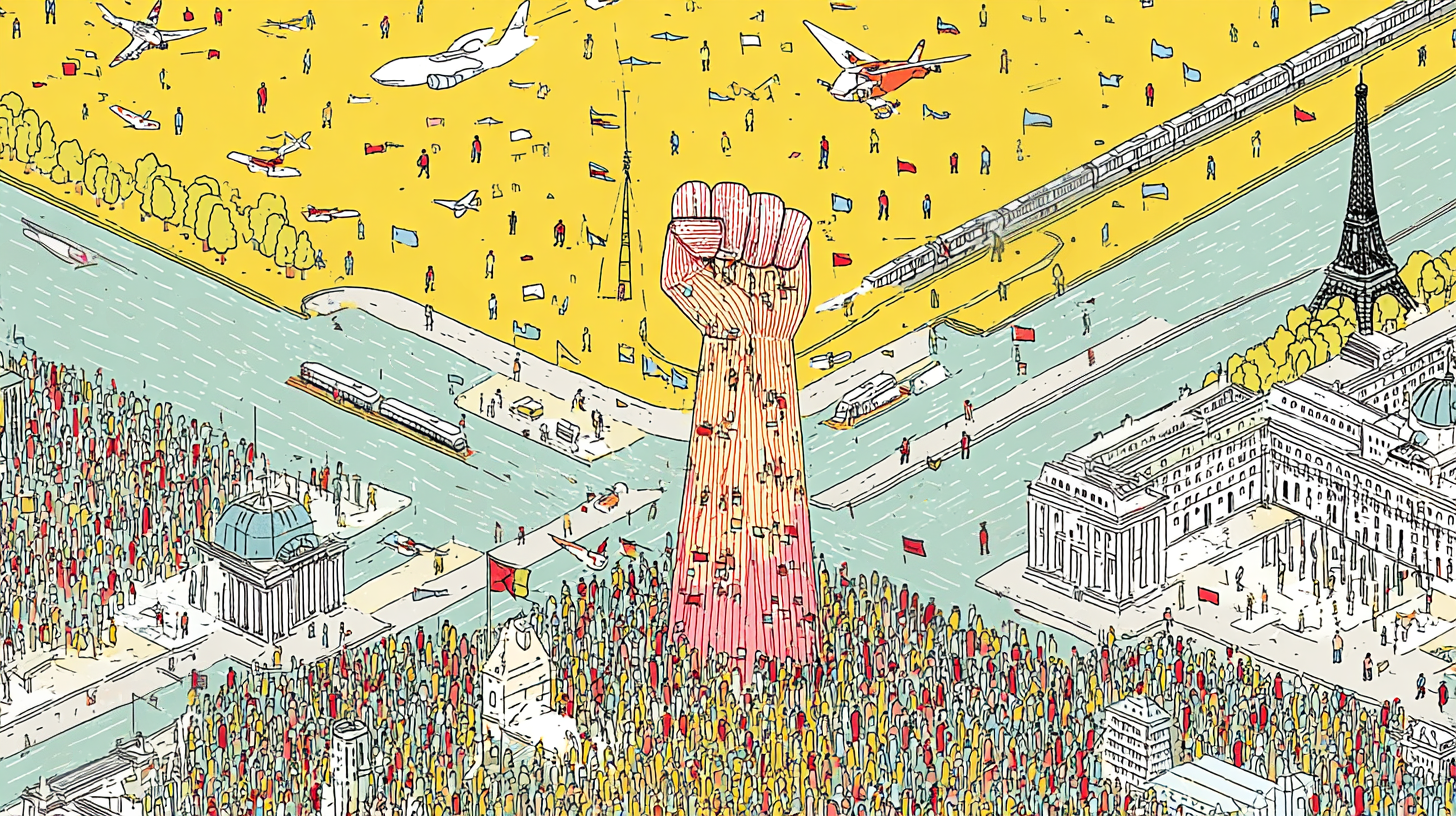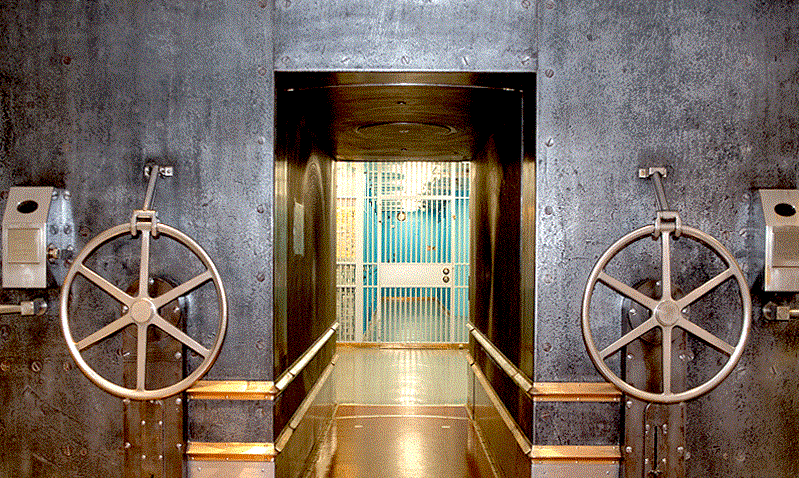Europe’s Striking Syndrome

The strike that closed almost all of London’s underground network for four days in mid-September is estimated to have cost the UK economy £230 million ($307 million). It was arranged by the Rail, Maritime and Transport (RMT) union, which campaigns for one of the most exploited groups of workers in British society: the capital’s tube drivers, who work 35 hours a week for £70,000 ($94,000) a year—almost double the national average salary.
Two 24-hour strikes had been planned in November, but were called off after Transport for London (TfL) offered tube drivers a 4.5% salary increase. In an attempt to prevent the latest industrial (in)action, TfL proposed a further pay hike of 3.4%, which the RMT rejected. It also claimed that a four-day working week—one of the union’s most unreasonable demands—was impractical and unaffordable. London’s Labour mayor Sadiq Khan prevented another planned strike in January 2024 by throwing an extra £30 million at transport unions, the source of which was a mystery; on this occasion, however, he chose not to intervene.
It’s only a matter of time before London is reduced to chaos again. During the latest strike, the RMT’s secretary general Eddie Dempsey said that he won’t stop fighting for its members until they’re earning enough to buy their own houses (his interviewer failed to point out that purchasing property in the British capital is not a civic right). But Londoners are not alone in living with the constant threat of industrial action. Europe is a strike-prone continent, as has been demonstrated by the most recent wave of protests and walk-outs.
Any industry or nation trying to effect change by not showing up for work can take inspiration from France, a nation whose entrenched strike culture can be traced back to its First Republic. Viewed in one way, the 1789 revolution was a massive strike against inequality and absolute monarchy. Withholding labor in France has been a civil right since 1864, and citizens aren’t afraid to use it: as of 2019, the country has had a rail strike every year since 1947.
On September 18, the week after Dempsey held London hostage, an estimated one million people took to the streets of France. The target of the nation’s anger was new prime minister Sébastien Lecornu, the 5th to be appointed by president Emmanuel Macron in less than two years. Citizens are demanding that Lecornu scrap his predecessor’s cuts to welfare spending, but he is also under pressure from Macron to reduce France’s budget deficit, currently almost twice the EU limit of 3%. Macron’s proposed pension reforms also caused nationwide unrest between December 2019 and February 2020, resulting in severe travel disruption.
So far, the French have failed to repeat the success of strikes and protests held in 1995, in opposition to proposed welfare cuts by Conservative prime minister Alain Juppé. Then, as now, the government aimed to reduce the budget deficit (which stood at 5% of GDP in 1995) by introducing austerity measures. Two million people took to the streets, causing Juppé to scrap most of his fiscal policies. Macron has so far resisted the nation’s discontent, and in April 2023 signed into law one of his most unpopular reforms—an increase of the retirement age from 62 to 64. Lecornu has yet to announce a fiscal program, but union bosses were unsatisfied with his response to the September 18 strike and have called another for October 2.
Spain is also highly prone to strikes. Between 2000 and 2009, it lost an average of 153 working days per year to industrial action—the highest such figure in Europe (one imagines the French were furious). On September 14, security workers at Madrid Barajas, the country’s largest airport, walked off the job in protest at wages and working conditions. Reports about the scale of the action varied, with unions saying that 800 employees of the private security firm Trablisa were striking, while the company itself claimed only 21 workers had joined.
Passengers at Barajas reported missing flights due to 90-minute queues. Trablisa appealed to the Madrid Regional Institute of Mediation and Arbitration to declare the strike “illegal and abusive”—terms that would have also applied to London’s tube farce. In 2027, Madrid will introduce the first driverless trains on its Metro network, following the example set by Paris, which has three automated lines. In a move that has weakened his negotiating position with the RMT, Khan has opposed calls to do the same in London, to avoid weakening his position with the RMT.
Greece has also seen widespread displays of civil discontent this year. Public transport systems and flights were severely disrupted on February 28, as part of a 24-hour general strike called to mark the second anniversary of the Tempi train crash. The pretext was perceived as government neglect of transport infrastructure, both before and since the collision between a freight train and intercity service that killed 57 people in February 2023. Relatives of the victims are now requesting that the EU order exhumations, so that toxicology tests can be performed: they suspect that the freight train was carrying illegal fuel, which caused a huge explosion after the crash. Another 24-hour strike was held throughout Greece in April, called by the country’s two main unions in protest over low wages and the austerity measures imposed on the country by international creditors a decade ago.
In Germany, a strike in March affected 13 of the nation’s airports, including the major hubs of Frankfurt, Munich, and Berlin. It was led by Verdi, Germany’s second-largest union, and sought an 8% pay rise and three more days of holiday per year for airport workers. Hundreds of flights were canceled, disrupting the travel of an estimated half-million people—but a spokesperson for Verdi blamed the chaos on employers “because they haven’t put a negotiable offer on the table.” This echoed Dempsey’s claim that Khan was (at least) jointly responsible for London’s tube strike because he’d failed, as the chair of TfL, to meet the RMT’s demands. When the decision to strike is taken solely by unions, often as an opening gambit rather than a last resort, the resulting disruption is always someone else’s fault.
London’s tube strike has more in common with the recent industrial actions in Germany and Spain than it does with the mass protests in France and Greece. Compared to those, it deserves the most criticism. If one were to argue that the amount of disruption caused by a strike is justified by the scale of the problem to which it is reacting, London’s is hard to excuse: £230 million lost and four days of travel hell for eight million people—all because tube drivers want more money for a job that in other cities is performed by computers.
The post Europe’s Striking Syndrome was first published by the Foundation for Economic Education, and is republished here with permission. Please support their efforts.



